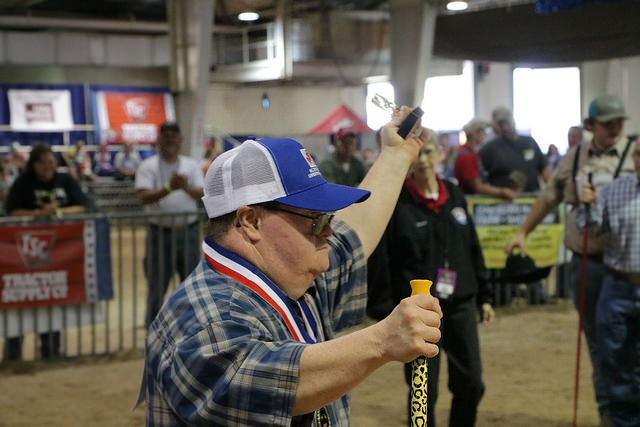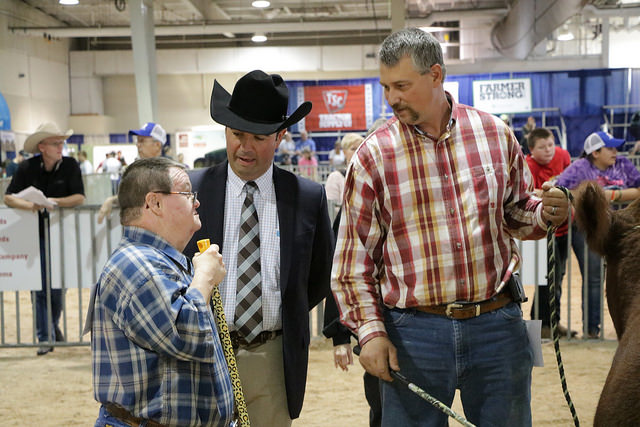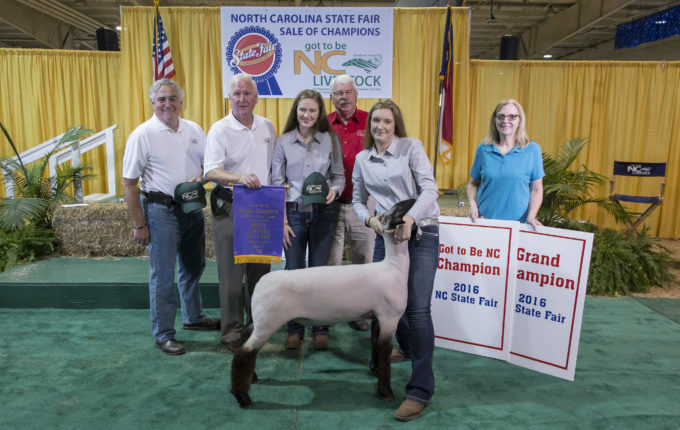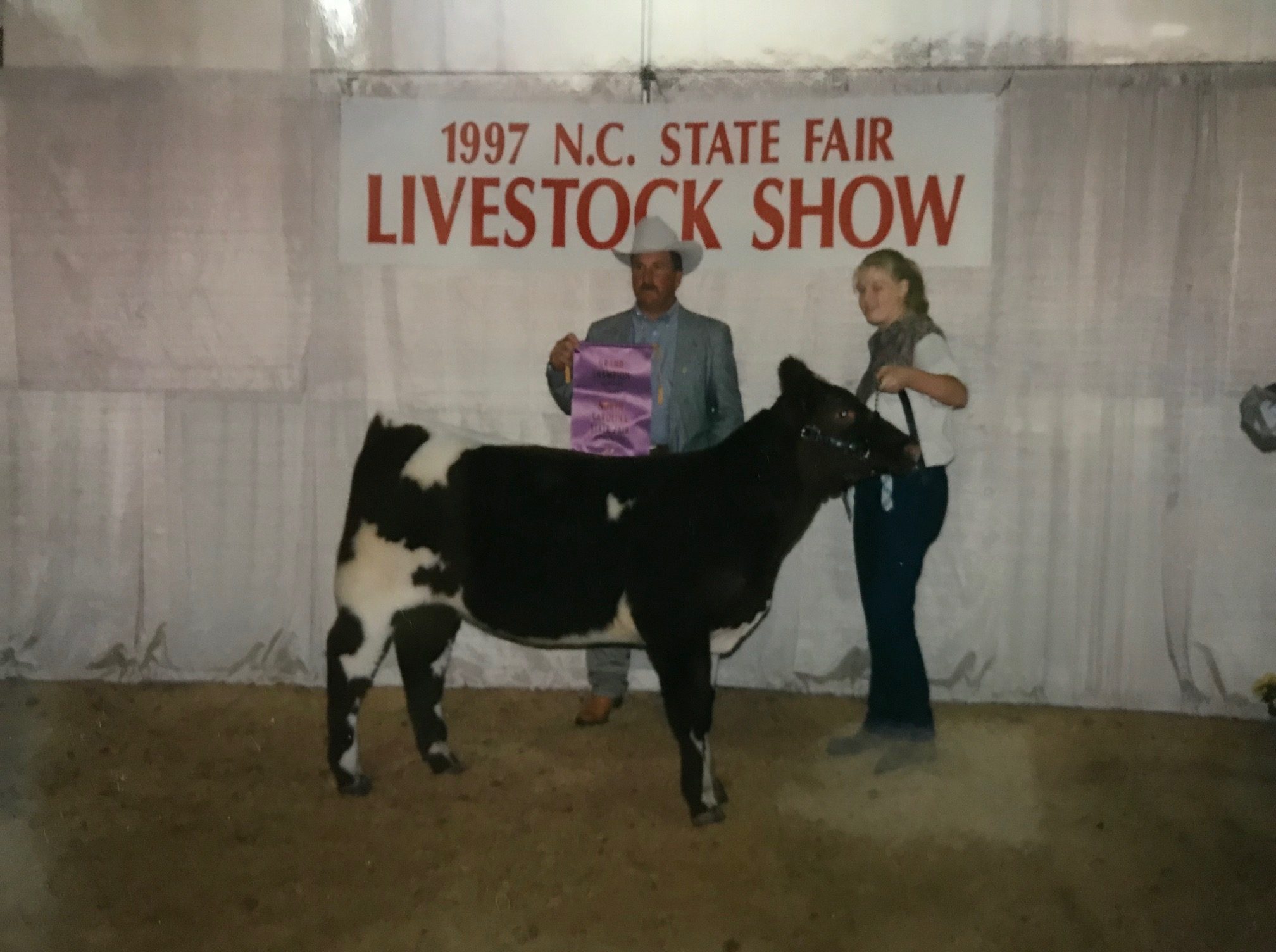 Brent Jackson was elected to the North Carolina Senate in 2010 and is currently serving his fourth term representing Duplin, Johnston, and Sampson counties. He is the co-chairman of the Senate Appropriations/Base Budget Committee and serves on numerous other committees as well.
Brent Jackson was elected to the North Carolina Senate in 2010 and is currently serving his fourth term representing Duplin, Johnston, and Sampson counties. He is the co-chairman of the Senate Appropriations/Base Budget Committee and serves on numerous other committees as well.
Jackson and his wife Debbie are first generation farmers, starting Jackson Farming Company in Sampson County in 1981. They currently grow watermelons, cantaloupes, honeydews, strawberries, pumpkins, corn, wheat, soybeans, peanuts, flue-cured tobacco, occasionally cotton, and various other crops.
Question #1: There are only five North Carolina legislators (about 2% of the General Assembly) who list farming as their occupation. As a farmer, what perspective do you bring to the General Assembly? Conversely, is there anything you’ve learned as a legislator that has given you new perspective on the farm?
There are a wide variety of backgrounds amongst my fellow legislators, and I believe that everyone’s individual and unique experiences are a source of value. As a farmer, I have tried to ensure that my colleagues know where their food comes from and the work that goes into putting food on the shelves. I have also made it a point to stress the goodness of American agriculture and the wonderful and exciting career opportunities that exist, especially for young people.
Question #2: In your opinion, what is the most significant state-level issue facing farmers in North Carolina? And what is one issue that may not be on the front-burner for farmers that you think they need to pay more attention to? Why?
I think there are several main issues that we will have to continue to work on at the state level. The first is labor, although mainly a federal issue and President Trump and Congress are working on a solution. However, it is important that from a state level, we are careful not to pass laws making it more difficult for farmers to use a legal workforce. Without a reliable and legal workforce, crops cannot be harvested.
We must also make sure that our regulatory framework is set up to foster growth in the industry and recognize that one-size-fits-all regulations rarely work in farming. Water rights will continue to be an issue that we must remain vigilant on. It will be important for farmers to make their voices heard as the EPA goes about reviewing and rewriting the Waters of the US (WOTUS) rule.
Farming is a way of life in rural North Carolina, and we must do a good job working with our urban citizens to ensure that rural and urban North Carolina works in harmony.
Another issue that we must tackle to ensure the future of farming is the average of the farmer, which in North Carolina is in the mid-50s. Too many of our children in rural communities are moving off the farm and to the cities. It is crucial that we make sure we inspire the next generation of farmers and expose our children to the career options that the ag industry offers. We must also make sure that we help first-generation farmers overcome the barriers to entry, especially given the price of equipment and land.





 Jimmy Dixon was elected to the North Carolina House of Representatives in 2010 and is currently serving his fourth term representing Duplin and Wayne counties. He chairs the House Agriculture Committee, is Vice-Chairman of Appropriations, and serves on numerous other committees as well. A few years after graduating from Wake Forest University in 1969, working for Procter & Gamble and teaching school, Rep. Dixon returned to his roots in 1973 and started a farming career raising poultry and vegetables for forty one years until his ‘semi-retirement’ in 2014.
Jimmy Dixon was elected to the North Carolina House of Representatives in 2010 and is currently serving his fourth term representing Duplin and Wayne counties. He chairs the House Agriculture Committee, is Vice-Chairman of Appropriations, and serves on numerous other committees as well. A few years after graduating from Wake Forest University in 1969, working for Procter & Gamble and teaching school, Rep. Dixon returned to his roots in 1973 and started a farming career raising poultry and vegetables for forty one years until his ‘semi-retirement’ in 2014.